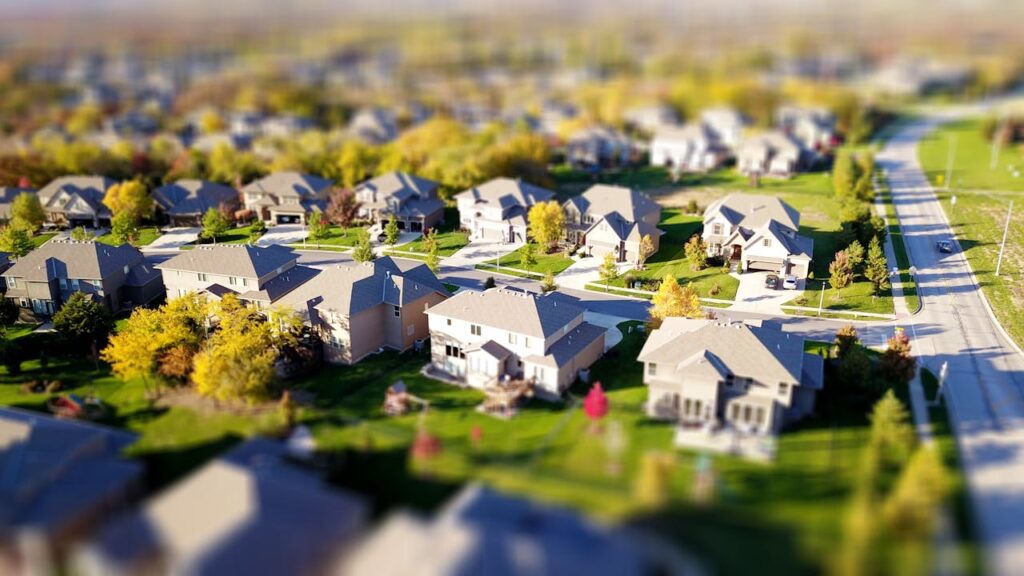
A Guide to Selling Your Buy-To-Let Property
Thinking of selling your buy-to-let? Learn how to time the market, manage tax and maximise

When browsing property listings, you will see that they are labelled as either ‘freehold’ or ‘leasehold’. But what do these terms mean? Is it better to invest in a leasehold or a freehold property? Here, I will explain exactly what each term means, the pros and cons of freehold and leasehold properties, and how each will affect buying and selling a property.
Table of Contents
ToggleWhen you buy a freehold property, you own the house and the land it is built on, including any outdoor space or gardens. The entire property belongs to you outright and there’s no ground rent to pay. Most houses in the UK are freehold properties.
Buying a leasehold property means you own the house itself, but not the land it is built on. The land is owned by the freeholder, or landlord, who is selling the property for a set period. Most leasehold properties are flats, apartments or maisonettes, although some leasehold properties are houses. Leaseholds are usually quite long – from 125 to 999 years. If there are shared spaces on the property, like gardens, are owned by and the responsibility of the landlord. For indoor communal or shared spades such as corridors and stairs in a block of flats, the landlord usually maintains these in exchange for a service fee or ground rent charges.
Here are some of the benefits and drawbacks of freehold and leasehold properties.
Some landlords of leasehold properties offer the chance to extend the lease for 999 years instead of selling the freehold, this is often cheaper than buying the freehold outright, and unless you plan on living for a thousand years, this length of lease is sufficient. This will make it easier to sell the property or obtain a mortgage, although even with a very long lease, you are still a leaseholder, subject to ground rent, service fees, and the restrictions that come with a leasehold property.
Once a lease expires on a property, you don’t have to leave – the tenancy will carry on under the same terms as before unless you or the freeholder decides to end it. Sometimes, the landlord can end the lease and start eviction proceedings. Action is usually taken by one of both parties to extend the lease before it runs out, or the freeholder can sell the lease to the leaseholder.
Leaseholders have the right to extend their lease under the Leasehold Reform, Housing and Urban Development Act 1993. This can be done if they have lived there for more than two years and extend the lease to a further 90 years. Under the newer Leasehold and Freehold Reform Act which passed this year, leaseholders will not have to have lived in a property for two years to extend the lease, they can extend it by up to 990 years, and it is cheaper to extend the lease. While this act has passed into law, it will be at least a few months from the time of writing (October 2024) before these changes occur.
Under the current system, it does cost money to extend a lease, the price depends on the property value, how many years are left on the lease, and other factors. Contacting a solicitor who specialises in lease extensions will help you work out the expected costs – although they can be negotiated. Informing the freeholder of your desire to extend the lease is the first step – then get in touch with your solicitor. Bear in mind there are legal and admin fees associated with lease extensions, so factor these into your costs. This is known as the statutory lease extension or formal route.
Some freeholders will be willing to negotiate a lease extension directly with you informally – this can cost less but you will not be given the same statutory protections as the formal route.
Yes – this is what happens when you buy the freehold from the landlord. Of course, they have to be willing to sell it. If you want to buy your freehold and own the property outright, you will need to calculate its worth based on the value of the property, remaining lease term, ground rent, legal fees and more. As with extending a lease, you should seek the advice of a solicitor who specialises in leaseholds.
Learn more about the ins and outs of property investment from our experts at one of Assets For Life’s FREE property events – click the link below to find out more or book your place today.
You May Also Be Interested In...

A Guide to Selling Your Buy-To-Let Property
Thinking of selling your buy-to-let? Learn how to time the market, manage tax and maximise

Planning Permission Loopholes You Should Know About
Discover UK planning permission loopholes, permitted development rights and when you can extend, convert or

How the Bank of England Base Rate Affects Your Buy-to-Let Mortgage
Learn what the Bank of England base rate is, how it’s set, and how changes
Featured Property Investment Events & Courses
The Property Deal Packaging Summit
The Property Millionaire Bootcamp
The Serviced Accommodation Bootcamp
Assets For Life LTD is a company incorporated in England and Wales with registered number 09935286 and registered offices at Assets for Life Ltd, Suite 105, Waterhouse Business Centre, 2 Cromar Way, Chelmsford, Essex, England, CM1 2QE, United Kingdom.
Assets For Life LTD is registered with the Information Commissioner’s Office, with registration number ZA280607
COPYRIGHT © 2024 ASSETS FOR LIFE, ALL RIGHTS RESERVED. WEBSITE BY AMPLIFY MARKETING